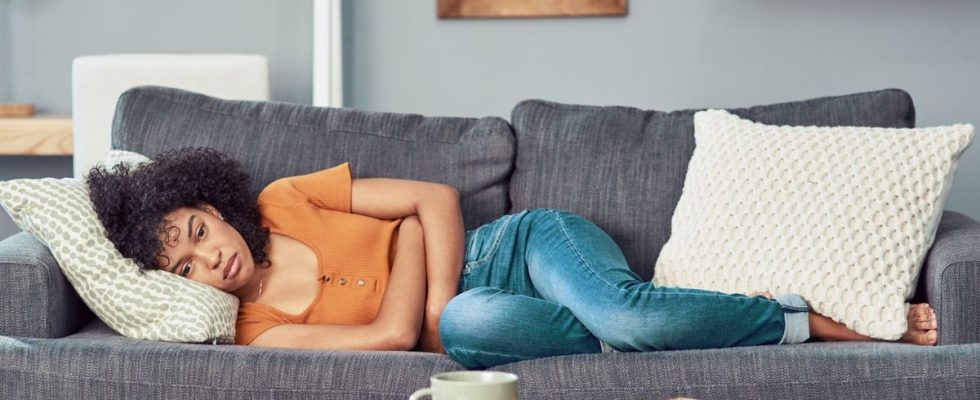Published on
Updated
Reading 3 min.
Nearly one in two women aged 14 to 28 say they have already missed at least one day of classes due to their periods, and more specifically the pain caused by them. This is what a recent survey reveals which looked at the health of adolescent girls and young women in France, showing in particular the impact of periods on their daily lives.
Tears, preconceived ideas, pain… Menstruation is a source of stress for many adolescent girls and young women, as numerous studies have already shown. The numerous symptoms that accompany them can even prove disabling to the point of forcing those mainly affected to miss classes. This is what we learn from a survey carried out by Opinion Way for the HeyMe Lab with more than 1,000 French women aged between 14 and 28 years old. Nearly half of the young women surveyed (47%) say they have already been absent because of their periods, including 20% who have already been absent several times during the school year.
However, this time of the month is not necessarily experienced badly by those mainly concerned, with 38% of respondents even saying they experience it well – compared to 31% who experience it poorly. Among young women who experience this period, nearly two thirds (65%) say they have already missed classes, including 32% several times per school year. The symptoms that can make this period one of the most difficult times are diverse and varied (97% say they experience them), and can range from abdominal pain (73%) to dizziness and dizziness (16%), including fatigue (67%). %), mood changes (53%), acne (47%), or even headaches (44%).
Note, however, that pain, whatever it may be, constitutes the first source of absenteeism among those who have already missed classes (82%), compared to the fact of having sport or swimming (24%), fearing that a task does not appear (10%), or the lack of equipment or facilities in the school (9%).
Alcohol and screens, blackheads
According to the survey, 81% of adolescents and young women consider themselves to be in good general health, including 19% who even describe their health as excellent. The results differ with regard to mental health, since ‘only’ 69% of respondents declared it to be in good shape, and 9% of respondents considered it to be poor or fragile. Note that the general practitioner (98%), the dentist (97%) and the ophthalmologist (85%) are among the health professionals most consulted, ahead of the gynecologist whom six out of ten young women say they consult.
Another observation, almost a third of respondents (32%) say they have had to give up consulting at least one health professional over the last 12 months. Among the reasons given, there are too long delays (43%), the cost of the consultation (33%), or even a lack of time (15%).
Young French women were also questioned about their consumption of screens and alcohol, and the findings may seem worrying. Nearly two-thirds of respondents (65%) say they spend too much time in front of screens, whether it’s a smartphone, a tablet, a computer, a games console, or even ‘a television. Among these respondents, 40% estimate this screen time between 2 and 4 hours, while 53% estimate more than 4 hours per day.
Nearly two thirds of young French women (64%) also say they have consumed alcoholic beverages in the last twelve months, but this is mainly occasional consumption. While 16% say they have drunk it once or twice a week, a large proportion (42%) consume it once a month or less, especially for special occasions. Among consumers, 49% do it to relieve pressure, 23% to be more comfortable in society, and 19% “to be like everyone else”.
*This study was carried out by OpinionWay for Lab HeyMe, between January 9 and 17, 2024, with a sample of 1,001 French women between 14 and 28 years old, representative of this population.
